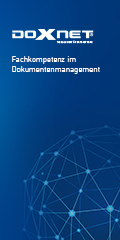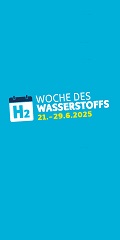
Clevon has Delivered Nearly One and a Half Thousand DHL Express PackagesClevon, a global autonomous delivery innovator, and DHL Express Estonia began their partnership in the summer of 2022. Customers have warmly received the service, and the partners are moving towards expanding their collaboration.

The pilot project has gradually grown into an everyday service, and now Clevon’s Autonomous Robot Carrier (ARC) is a part of DHL Express Estonia’s vehicle fleet. In the project’s first stage, the carrier transported DHL Express internal packages between three offices in the Capital of Estonia, Tallinn. Soon after, they moved on to serving business customers, and this year, private customers were also added.
„Of course, initially, there was a lot of uncertainty because neither our nor DHL’s global team had previously tested such a solution. However, over the past year, our extensive collaboration has proven that this technology has great potential,“ stated Kristina Laaneots, Managing Director of DHL Express Estonia.
Clevon’s CEO, Sander Sebastian Agur, also highly values the collaboration: „DHL Express is our longest-standing partner who is very much open to innovations. We have tested several approaches with them and received valuable feedback on our product and end-customer expectations. This, in turn, has set a good starting point for growing DHL’s last-mile autonomous service in Estonia and elsewhere in the world.“
Thousands of Shipments and Miles
Clevon’s third-generation robot delivers packages on all business days to DHL Express customers across the entire Tallinn, including the historic Old Town. While access to the Old Town is typically strictly regulated, in collaboration with the City of Tallinn, the robot carrier is allowed to operate without any restrictions. The fully electric ARC reduces both noise and air pollution in the UNESCO-listed Old Town and delivers packages in a swift, safe, and convenient manner to DHL Express customers in the area.
The partners started out with one ARC. It has transported over 1,200 parcels during the year and traveled more than 4,400 miles (7000km) in all four seasons. A driverless robot continues to create a lot of positive excitement among fellow road users and tourists because this kind of technology is still rarely seen on public roads worldwide. Also, the end customers are very satisfied with the robotic delivery service and have rated it highly (NPS* 81%). Based on the feedback, people consider the robot fast and easy to use and are willing to receive their parcels with it in the future.
Is a robot a more efficient courier than a human?
The collaboration aims to find the most suitable use cases and operational formats for robot couriers that will make last-mile package deliveries more cost-effective and, therefore, support the wider adoption of self-driving carriers. So far, we have successfully tested a number of service models to deliver a well-planned, optimized, and user-friendly service.
One such model combines the middle and last-mile, which the partners affectionately call „flower“ after its visual. The advantage of this model is that each delivery vehicle is used in the service where its characteristics are best suited. DHL Express vans, which can carry more and travel longer distances, transport packages from the terminal to designated locations in the city (the middle mile), while Clevon’s carrier handles the most time-consuming part, the last-mile. This reduces the robot’s empty trips and increases the overall delivery efficiency.
Kristina Laaneots confirms that the goal of utilizing the robot is not to replace human couriers completely; rather, each has a role to play in the service process: „Finding people for courier work is increasingly difficult, but we see an opportunity here for them to focus on offering premium services at a fair price while self-driving robots can help us deliver more packages faster.“ She added that the collaboration with Clevon is just beginning, „I’m so pleased that it’s here in Estonia where we can experiment with new technologies and then introduce them within the DHL Group, which is interested in self-driving solutions, although big wheels turn slowly.“
Sander Sebastian Agur concluded: „Clevon’s self-driving delivery technology has global demand. With partners like DHL and our strong team, we are making last-mile transportation autonomous and sustainable with determined steps.“
Quelle: www.clevon.com
*Net Promoter Score (NPS) is calculated on a scale of 0 to 10 by subtracting the percentage of detractors (below 7) from the percentage of promoters (9 or 10) based on responses to the question of recommending a product or service, resulting in a score
that ranges from -100 to +100.
Schlagwörter: Clevon









